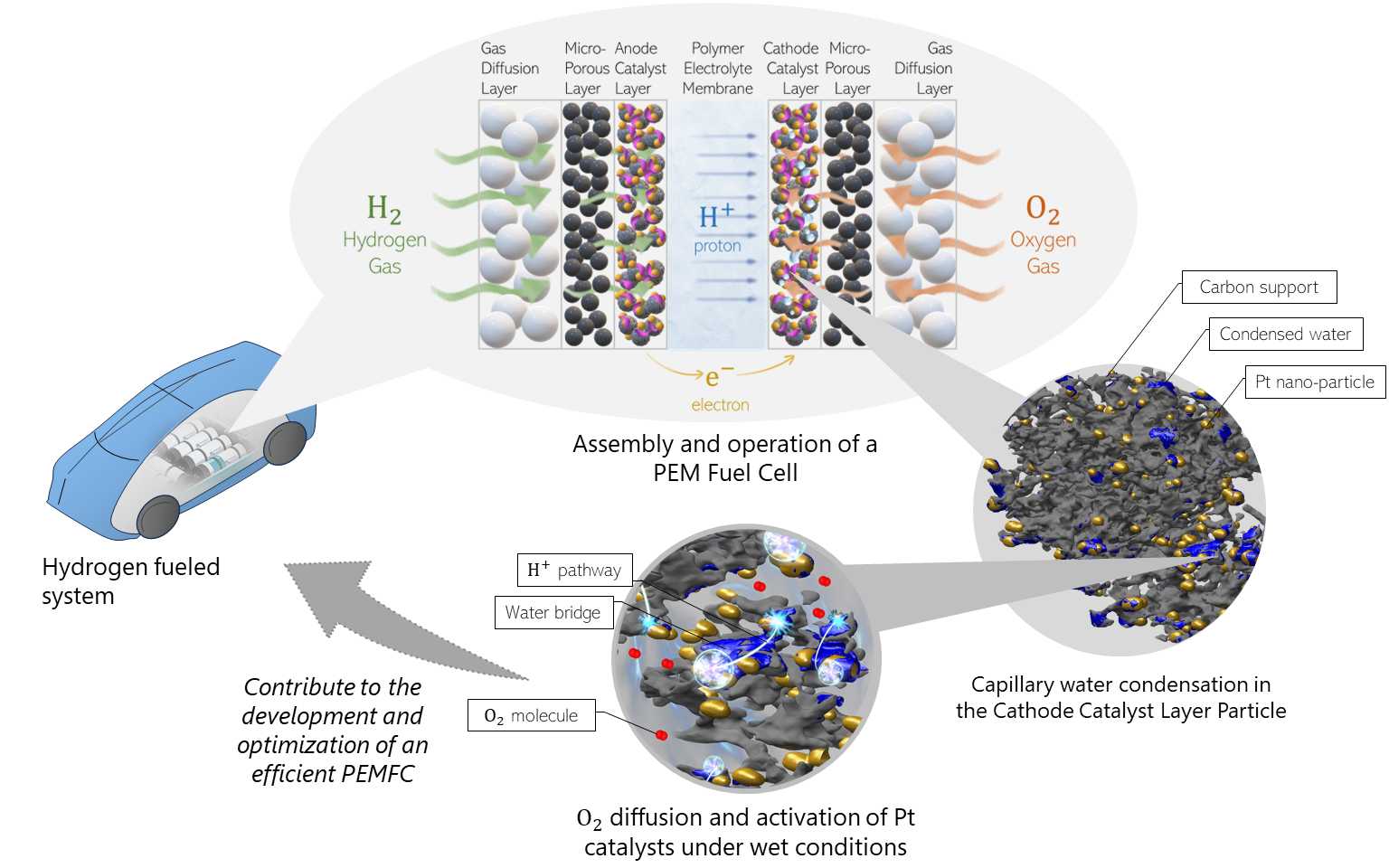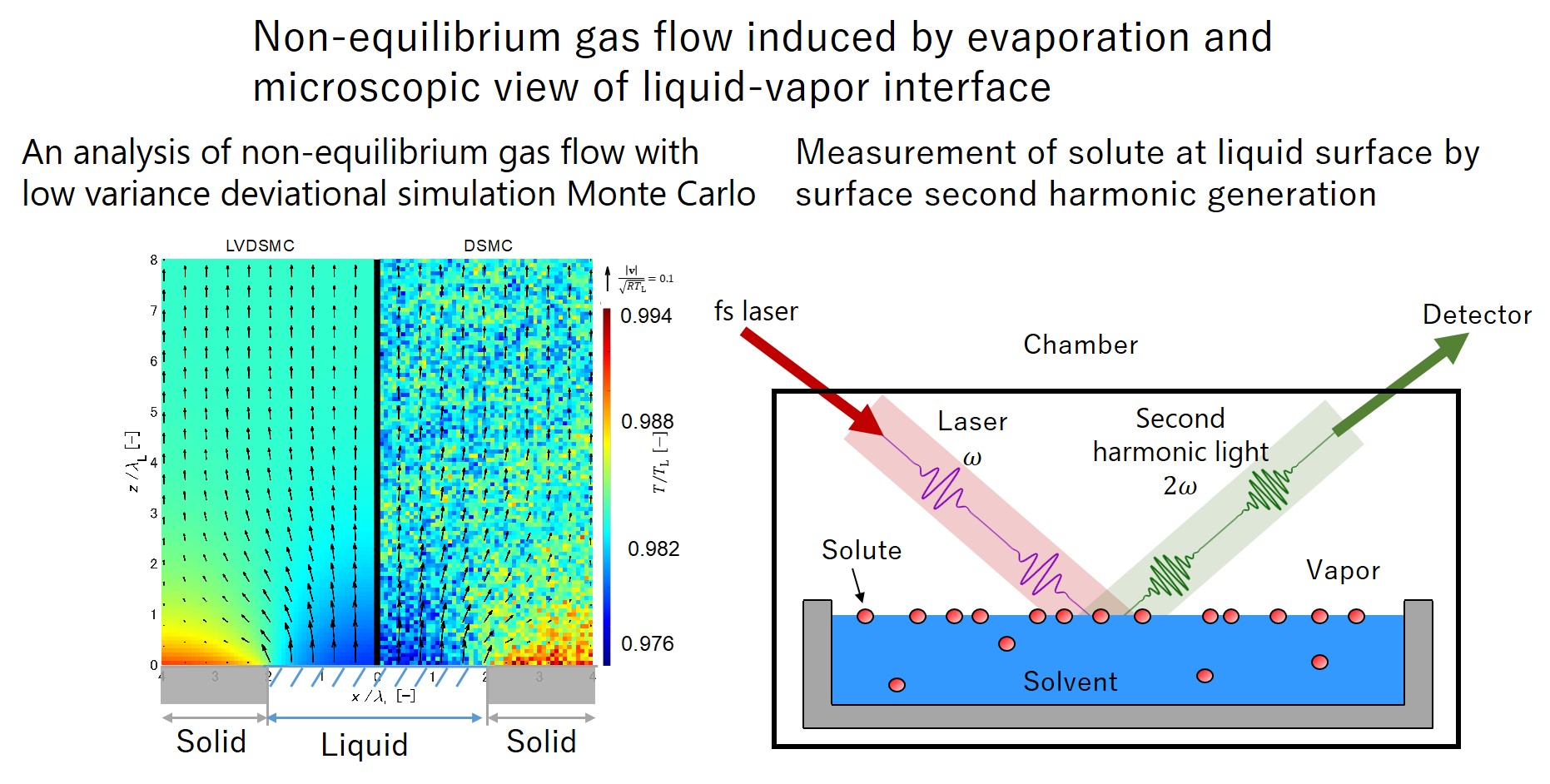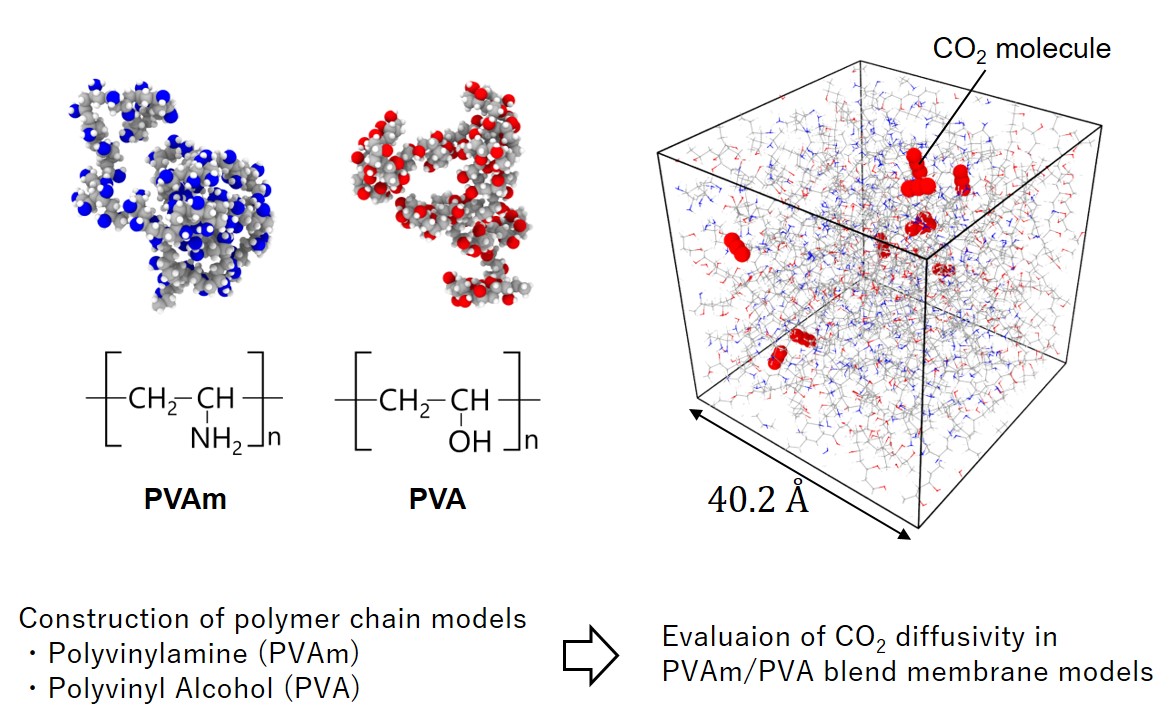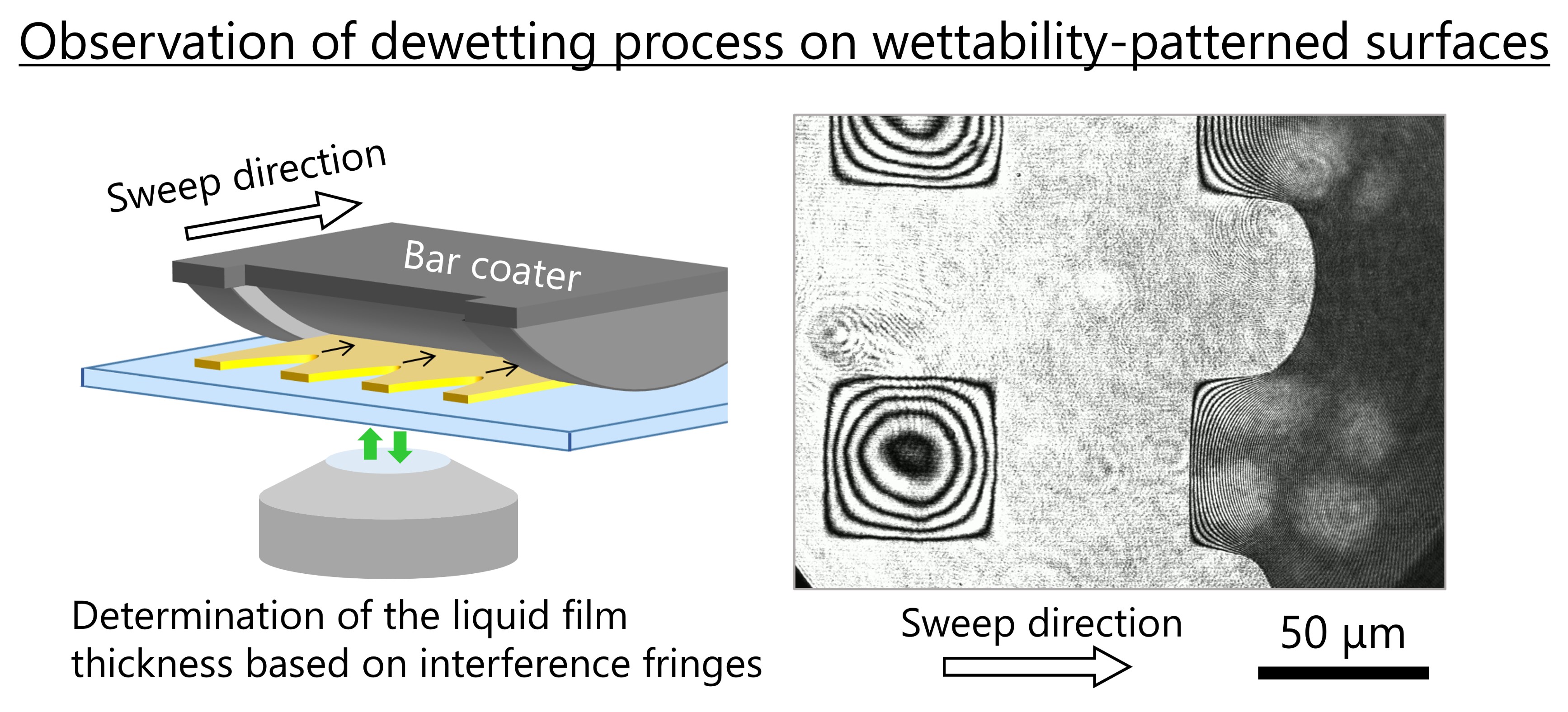Transport of Water and Oxygen in PEFC Catalyst Layers
Polymer Electrolyte Membrane Fuel Cells (PEMFCs) technology is pivotal in advancing a sustainable and low-carbon energy future.
Our primary focus is delving into the complex micro/nano-scale phenomena within PEMFCs, specifically within the Cathode Catalyst Layers (CCLs). One critical element of this investigation involves understanding how water condensation affects the catalytic efficiency of Platinum (Pt) nano-particles embedded within High Surface Carbon (HSC) supports.
Through our in-house simulation models and tools, we reproduce water condensation within the micro/nano-scale porous structure of CCLs, and conducting analyses of oxygen diffusion and proton pathways. Collaborating with external institutions, we validate our simulation results against experimental data. We are optimistic that our research will significantly contribute to the advancement of PEMFC technology.

Microscale Analysis of Evaporation Process in Liquid–Vapor Interface
Evaporation from porous materials is ubiquitos in both nature and engineering applications, such as transpiration from plants, desalinization devices, and cooling of semiconductor elements.
As for the above-mentioned PEFCs, water phase change also have an influence on power generation efficiency.
We aim to clarify (1) evaporation phenomena at liquid–vapor interfaces from a molecular perspective and (2) nonequilibrium gas flows caused by evaporation near a liquid–vapor interface (i.e., the Knudsen layer).


